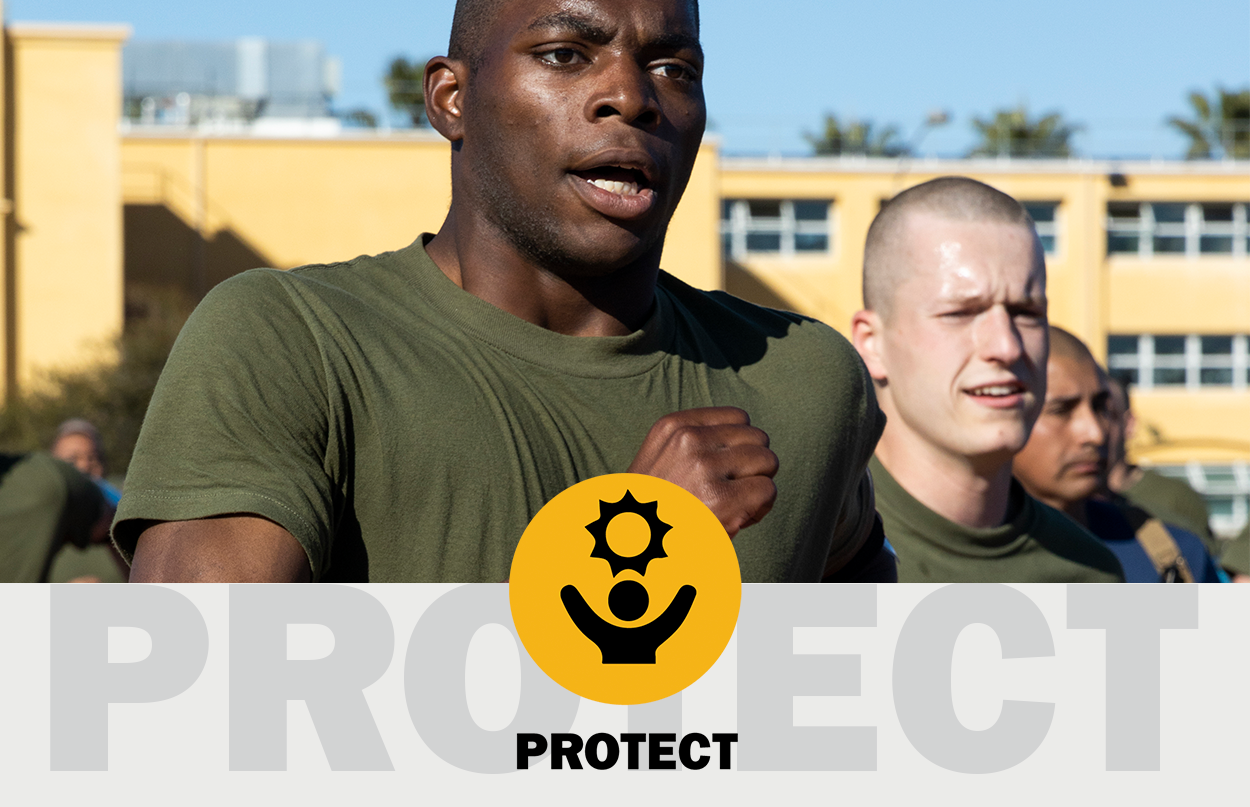Skip subpage navigation

Practice just a few of these habits daily to protect against stress.
- Exercise: Physical exercise influences brain and body health and may help reduce the cumulative effects of stress.7
- Balanced nutrition: Nutrients from our diet directly impact the growth and repair of brain cell and fuel our ability to cope with physical and emotional stressors. 1, 2
- Quality sleep: Quality sleep is healing and restorative which enhances our cognitive and physical health and our ability to manage stress. 5, 9
- Relaxation and meditation practices: Daily practice promotes a state of relaxation, enhances positive wellbeing, and can enhance physical and mental health for stress management. 3, 4
- Setting goals: Helps to reduce stress hormones and may increase a sense of control and accomplishment.8
- Positive perspective: Provides hope and helps us keep us moving forward.8
- Social supports: Connection with others helps to reduce stress, and may increase mental wellbeing and positive experiences.8
References
- Bremner, J. D., Moazzami, K., Wittbrodt, M. T., Nye, J. A., Lima, B. B., Gillespie, C. F., ... & Vaccarino, V. (2020). Diet, stress and mental health. Nutrients, 12(8), 2428.
- Godos, J., Currenti, W., Angelino, D., Mena, P., Castellano, S., Caraci, F., ... & Grosso, G. (2020). Diet and mental health: Review of the recent updates on molecular mechanisms. Antioxidants, 9(4), 346.
- Li M., Wang L., Jiang M., Wu D., Tian T., Huang W. (2020). Relaxation techniques for depressive disorders in adults: a systematic review and meta-analysis of randomised controlled trials. Int J Psychiatry Clin Pract 24(3), 219–226.
- Riches, S., Azevedo, L., Bird, L., Pisani, S., & Valmaggia, L. (2021). Virtual reality relaxation for the general population: a systematic review. Social psychiatry and psychiatric epidemiology, 56, 1707–1727.
- Rivera-Kloeppel, B., & Mendenhall, T. (2021). Examining the relationship between self-care and compassion fatigue in mental health professionals: A critical review. Traumatology.
- Su, M. R., & Shum, K. K. M. (2019). The moderating effect of mindfulness on the mediated relation between critical thinking and psychological distress via cognitive distortions among adolescents. Frontiers in Psychology, 10, 1455.
- Venkatesh, A., Edirappuli, S. D., Pedersen Zaman, H., & Zaman, R. (2020). The effect of exercise on mental health: a focus on inflammatory mechanisms. Psychiatria Danubina, 32(suppl. 1), 105–113.
- Waters, L., Algoe, S. B., Dutton, J., Emmons, R., Fredrickson, B. L., Heaphy, E., ... & Steger, M. (2022). Positive psychology in a pandemic: Buffering, bolstering, and building mental health. The Journal of Positive Psychology, 17(3), 303–323.
- Wong, M. L., Lau, E. Y. Y., Wan, J. H. Y., Cheung, S. F., Hui, C. H., & Mok, D. S. Y. (2013). The interplay between sleep and mood in predicting academic functioning, physical health and psychological health: A longitudinal study. Journal of psychosomatic research, 74(4), 271–277.
You are leaving Health.mil
The appearance of hyperlinks does not constitute endorsement by the Department of Defense of non-U.S. Government sites or the information, products, or services contained therein. Although the Defense Health Agency may or may not use these sites as additional distribution channels for Department of Defense information, it does not exercise editorial control over all of the information that you may find at these locations. Such links are provided consistent with the stated purpose of this website.
You are leaving Health.mil
View the external links disclaimer.
Last Updated: March 19, 2024